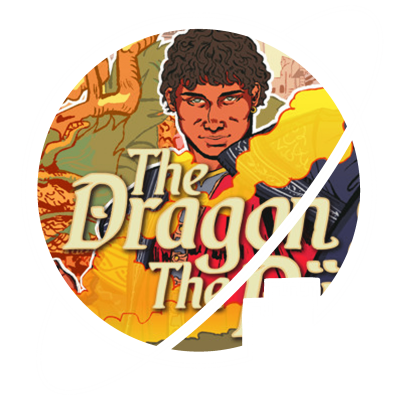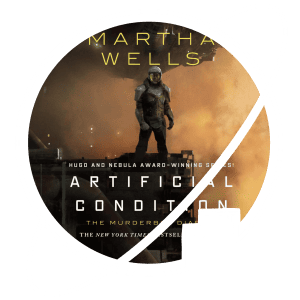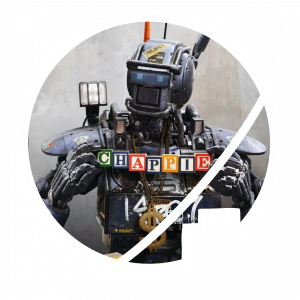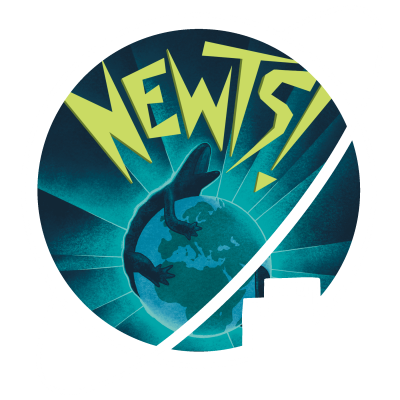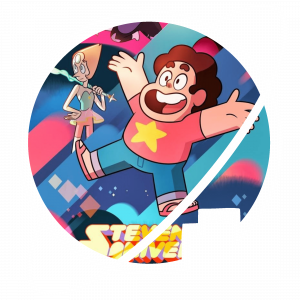Welcome to the Escape Velocity Collection!
We are an opinionated group of friends reviewing all sorts of fantasy and science fiction media. Don’t forget to get to know the curators and visit our curated Collection, where we discuss the stories that never cease to transport us to another world.
Will you escape with us?
LATEST POSTS:
- Video Game written by Athar Fikry
- Published by Choice of Games
- Published in 2022
- Interactive novel, Singleplayer
- Platforms: Android, IOS, Microsoft Windows,
You’re chasing your sister, who stole a magic sword you made because she claims to be a prophesied dragon-slayer.
As you get mixed up in dangerous politics and the even more dangerous business of djinns, you soon discover that your sister’s destiny will also lead you to your own.

I’ve been a casual customer of Choice of Games for years. One of my (many) creative ambitions is to write an interactive novel one day. I’ve always thought this medium has a lot of potential to tell amazing stories; the endless possibilities of literature combined with the variable nature of a roleplaying game. Challenging to create, but so very rewarding if done right. When I ever get to writing my own interactive novel, the quality of The Dragon and the Djinn is the quality I’ll strive for.
Athar Fikry wrote a story that, at first glance, looks like a simple ‘let’s (help) kill a dragon’-story. However, there is much more to The Dragon and the Djinn than meets the eye. The author incorporated many intricate side characters, side plots, mysteries and difficult choices to keep you on your toes throughout the whole game. Not to mention a fair share of curve balls. A personal highlight would be the moment my little sister literally stabbed me in the back with a blade, an outcome that’s probably very avoidable if I had made other choices earlier on. As is the nature of interactive novels, I believe there’s much of lore and character depth that I didn’t encounter on my initial playthrough. I still have a couple questions that I want answers to. Also, according to the achievements, there is a post-credits scene!?
During my playthrough, I kept a fairly close eye on my character’s stats and relationships. I have to admit I find it hard to say how much impact they have on progression of the story. There were a few instances in which I could clearly see a choice was unavailable to me because I lacked the corresponding skill level.
As for the pacing of the story, I felt the last few scenes/chapters got quite chaotic. This was not completely unbefitting for the circumstances of the plot, but took me by surprise after the substantial and thoughtful build-up.
Never played an interactive novel before, but willing to try your hands on one? Then I definitely recommend The Dragon and the Djinn.
- Book written by Martha Wells
- Published in 2015
- Part one of the Murderbot Diaries
All Systems Red is the the story of a robot-human hybrid indentured security unit that hacked its governor module, and instead of murdering the humans that had kept him enslaved, it decided to use its new found freedom to download entertainment media from the station feed. Now, it spends its day watching ‘Sanctuary Moon’ on the future equivalent of Netflix instead of paying attention to its assigned duties – until mysterious equipment failures threaten the safety of the planetary exploration mission it is attached to and force it to take its job (at least a bit more) seriously.


Listened to the audiobook with Kevin R. Free. Rendition was so-so.
For some reason, this novella feels very GenZ to me – it features an androgynous robot-human hybrid with social anxiety and a nihilistic outlook on life, the lives of humans around it, and the universe in general. It basically just wants everyone to leave it alone so it can watch the future equivalent of Netflix in peace. Imagine my surprise when I learned that it was penned by a woman in her fifties – Wells appears to have a gift of tapping into that Zoomer mindset and translating it into the character of the eponymous Murderbot, who does not, in fact, care enough about anything to go on a murdering spree.
I really like the idea for this story – a refreshing twist on the age old trope of the android trying to find its place in human society, now connected to 21st-century themes on mental health and diversity. Though I didn’t really, I imagine some readers will identify strongly with the Murderbot. That alone might pull a lot of people in. Even for readers who don’t see themselves reflected in the ever-closed visor of the protagonist, there is enough to enjoy: All Systems Red is a quick-paced story not bogged down by explanations or unnecessary worldbuilding (as befits a novella). Wells sets the scene and explains the ways in which the story’s sentient machines interact effortlessly, builds up tension nicely, and wraps up very well.
I enjoyed All Systems Red, but was not blown away – I felt it was good, but perhaps held back a bit by its lack of depth in the worldbuilding. Besides the character of the protagonist, which I am the first to admit is new and interesting, the story is a relatively simple popcorn adventure set in a relatively generic corpocratic future in which mankind has colonised the stars. Still, it is only a novella so there is only so much room for exposition, and this is a story that focusses very much on the mind of that protagonist. I would definitely recommend this one to readers who like character driven stories, and especially those that might recognise themselves in a main character that likes watching television more than having to talk to people. Ugh.
Afterthought: I am convinced this could make a top-tier movie.

I have seen All Systems Red pop up repeatedly in the recommendation section of my audiobook app, but until now I have never felt the inclination to pick it up. This was mostly because the book’s cover made me expect something akin to an action movie, which has never really been my thing. And while I don’t always agree that you cannot judge a book by its cover, in this case it turned out that I was wrong: when I finally did pick up the book on Peter’s recommendation, it both surprised and delighted me.
It is unexpectedly wholesome: the good guys are kind, lovely people, alomst reminding me of the way that characters would interact in a Becky Chambers novel (although perhaps not quite as wholesome as that). The bad guys are comfortingly uncomplicated in their motivations. Large parts of the book’s universe are ruled by evil corporations who have no issues whatsoever with killing people who stand in the way of their profit, and the rule of law only protects those who can afford to pay for it. As anti-capitalist messages go this might feel a bit on the nose, but I enjoyed it nevertheless.
The star of the book of course is Murderbot itself. It is both funny and endearing in its awkward way of dealing with humans, and I identified a lot with its dry, sceptical outlook on the world. Since the book is only a novella and very fast paced I got through it in no time, and immediately went on to the other parts in the series.
Tagged:
See also:
- Audio drama created by created by Ian Coss & Sam Jay Gold
- Produced by PRX & The Truth
- Released in 2022
- Starring Lindsay Nicole Chambers, Rachael Grace Holmes, Joseph Medeiros and Jon-Michael Reese
Newts! is a fast-paced, musical comedy based on the book of the same name written by Karel Čapek. In an alternate early 20th century, a lone sea captain discovers highly intelligent newts. When he tries to find them a place to survive, the ‘economic possibilities’ of the species are quickly seen by a wealthy investor. The story is told by a bystander, who can’t help feeling a little responsible for everything that has happened since she opened the door of the investor for the discoverer of the newts.

Newts! is a fun, 6-episode musical that shows the evil, good and tragic nature of human kind through the rise of a new sentient species as a lucrative business opportunity. Despite the playful tone and melodramatic characters, the main story felt realistic, as it could have happened and could happen today. While human traits like greed and the indifference to suffering of others are certainly part of the story, the message is more nuanced. Also good people with good intentions can cause great tragedy or are just not capable to keep up with developments that propel history to a seemingly inescapable outcome.
The story is mainly told by a narrator who leads the listener from event to event, where dialogue takes main stage. I really like the parts where audio design was used to evoke old-timey film reels or news clippings – here the line between reality and fiction became a little thinner. I also appreciated the introduction of each episode by a little information about the author of the original book, the Czech science fiction writer Karel Čapek.
Despite the praise above, it was just not fully my cup of tea. It was well executed, but not really surprising, laughing-out-loud funny or emotionally moving. I liked it, but did not love it. Therefore: 3,5 stars.
Tagged:
See also:
- Movie directed by John Hillcoat
- Starring Viggo Mortensen, Kodi Smit-McPhee, Charlize Theron, and others
- Released 2009
- Runtime: 111 minutes
This faithful adaptation of the Cormac McCarthy book tells the story of a man and his son, trying to survive like normal humans in a post-apocalyptic world that is broken beyond all normalcy. It follows the trials of the man and the boy and their shopping cart full (and empty…) of food and as they try to survive the hardships of the Road, both physically and mentally, as the walls of the world seem to slowly close in…

John Hillcoat’s movie The Road is a very faithful adaptation of Cormac McCarthy’s book of the same name, both in the scene-to-scene plot progression (such as it is) and the overall mood. I liked the book for it’s atmosphere and more thoughtful (and therefore, frightening) portrayal of the violent, post-apocalyptic world that we have seen many times before. Hillcoat’s movie does the same, choosing to show the post-apocalyptic world as dreary, empty, desperate and frightening as opposed to action-packed and filled with opportunity.
In my review of the book, I (perhaps a bit respectlessly…) warned the reader that at times it felt a bit more like a stylistic exercise than a proper story. The movie is much the same, with slow scenes and flashbacks establishing the characters’ past, but never really looking to the future (which, of course, is the point). The lack of story progression bothered me a lot less on screen than on paper though – you spend a lot less time with a movie than a book, and that means that the movie’s heavy mood keeps you in it’s clutches all the way through, without giving you time to wonder where it is all going.
The movie is hardly enjoyable – it’s really dark and frightening – but it is very good at what it wants to do, and worth watching if only for its grim take on a genre that has at times become so derivative and trope-filled that we’ve stopped thinking about the day-to-day horrors of what life after the apocalypse could really be like.
- Audio drama written by Rob Norman
- Produced by CBC
- Released in 2021-2022
- Starring Eric Peterson, Rahkee Morzaria, Cal Dodd and more
Limited Capacity is a Black Mirror-esque anthology series of six short stories about the strange and twisted ways we interact with the internet, and with each other. The episodes span different genres and blur the line between reality and fiction.

I am a big fan of stories that create a thought experiment on the ways current technology impacts our world or could impact our world when set on steroids. Each episode of Limited Capacity does exactly that. It keeps the technology close to home and uses different genres to keep the stories fresh. The quality is very consistently good, although in an anthology series you always have favourites. A short roundup:
- We all hate Greg, right? A funny story about a Zoom call with magical powers and with a nice twist in the end. Great when you’re fed up with your collagues at the office – to remind you you don’t have to be nostalgic about the pandemic online period either…
- The Blue Checkmark. A mock interview with someone who takes over the social media account of an influencer on holiday. How real do you have to be?
- Kill the Chicken. A mockumentary about a youtube series for kids that becomes a political meme. Through the workings of social media two opposing sides only radicalise, without ever really talking with one another.
- Better Fitter Roger-er. Roger uses a self-help app, because he needs to be more assertive in setting his boundaries. But there might be a thing like ‘too-self-helped’.
- He Who Boils Rivers With a Look. An app for social interaction in real neighbourhoods is used for an imaginary neighbourhood and family roleplay for people wanting to escape their ‘real’ families. It starts as an idyllic town, but soon the problems begin…
- Slow Burn. Lizzie succeeds in getting an invitation to an elite dating app and finds someone there. But sometimes he acts a bit strange. What is his ulterior motive?
Tagged:
See also:
Feisty heroine Feyre (Pronounced Fey-ruh) kills a wolf in the woods, and is whisked away to a Faery kingdom to pay for her crime.
As the hatred for her captor slowly turns to steamy passion, she discovers the wonders of the Faeries. Their parties, wine, and magnificent world, but also what lurks beneath: danger, a blight that may forever destroy the beauty she has found.


Man, I had a hard time thinking of the right star rating for this book.
I’ve been sort of meaning to read this book for a year or so. It’s on a lot of “lists” of YA fantasy, and while I somewhat anticipated that it would be awful (sorry), it also did sound like the kind of dramatic Fantasy Romance that I might enjoy.
I found this novel at the thriftstore and started reading it pretty much immediately when I got home. It’s a page turner, I’ll say that.
But – is it good? I suppose that depends on your definition of “good”. There’s a lot of elements in this book that are clearly set-up for something that’s to come. It’s slightly clunky in this, I could always spot when Feyre mentioned some backstory that would later become relevant. Her family isn’t very well developed, but just enough to help us understand why she might be happy to be away from them. And, when Feyre mentions a promise she’d made to her dying mother to look after her father and sisters, you immediately know that this line is only in the book to explain why Feyre would ever even want to return to them when the Fey-world is much nicer.
There’s a lot of tiny things like this in A Court of Thorns And Roses. When reading a book, I don’t want to be thinking about the mechanics of the story. It pulls me right out. So, no. I wouldn’t say this book is “good” by that standard.
But what if you were to ask me: “could you put this book down?”. I would probably have to admit that I stayed up late reading a couple of times, and finished it in about four days.
A lot of this ACOTAR is vey cliché in a very unsubtle and slightly clunky way, but if I can’t put a book down, I kind of have to conclude that it is indeed good.
Will I be reading the sequels? No. Unless I find them at the thriftstore, maybe.
Tagged:
Similar to:
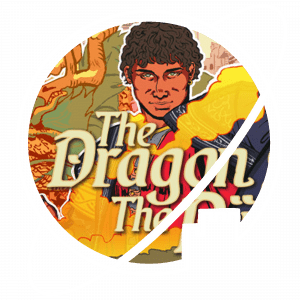
Review: The Dragon and the Djinn – Choice of Games
Review of the interactive novel The Dragon and the Djinn.
You’re chasing your sister, who stole a magic sword you made because she claims to be a prophesied dragon-slayer. As you get mixed up in dangerous politics and the even more dangerous business of djinns, you soon discover that your sister’s destiny will also lead you to your own.

Review: All Systems Red – Martha Wells
Part one of the Murderbot Diaries – All Systems Red is the the story of a robot-human hybrid indentured security unit that hacked its governor module so it could watch the future equivalent of Netflix instead of paying attention to its assigned duties – until mysterious equipment failures threaten the safety of the planetary exploration mission it is attached to and force it to take its job (at least a bit more) seriously.
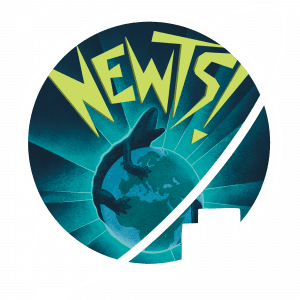
Review: Newts! – PRX & The Truth
In an alternate early 20th century, a lone sea captain discovers highly intelligent newts. When he tries to find them a place to survive, the ‘economic possibilities’ of the species are quickly seen by a wealthy investor.

Review: The Road – John Hillcoat
This faithful adaptation of the Cormac McCarthy book tells the story of a man and his son, trying to survive like normal humans in a post-apocalyptic world that is broken beyond all normalcy.
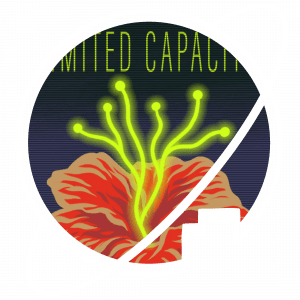
Review: Limited Capacity – CBC
Limited Capacity is a Black Mirror-esque anthology series of six short stories about the strange and twisted ways we interact with the internet, and with each other.
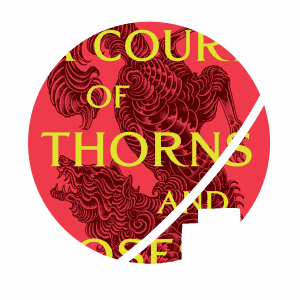
Review: A Court of Thorns and Roses
Feisty Heroine Feyre kills a wolf in the woods and is summoned to the Faerie world to atone for her crime. Here, she finds magic, love and a darkness spreading across the land…









